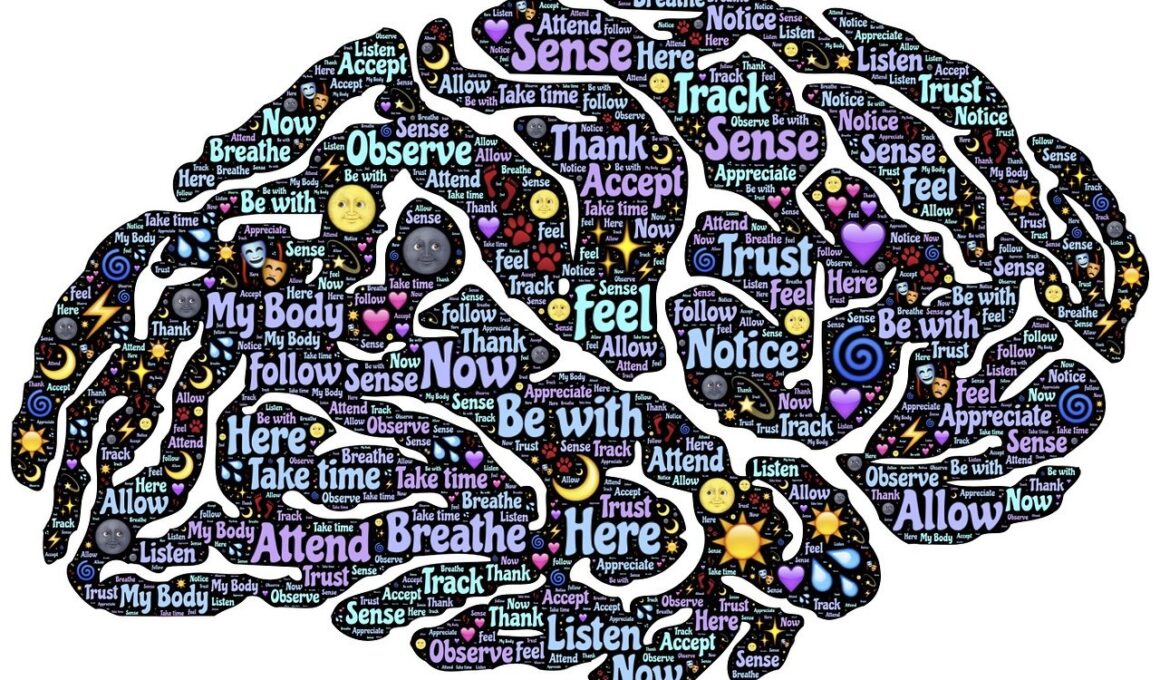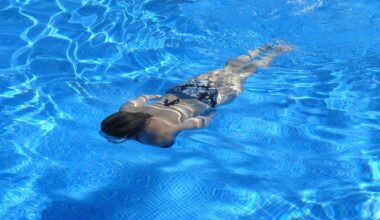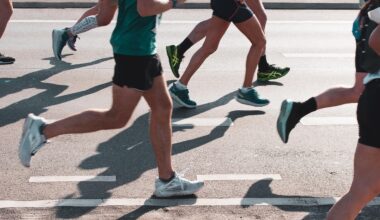The Future of Acupuncture in Fitness and Mind-Body Medicine
The future of acupuncture in fitness and mind-body medicine looks promising, as more individuals seek holistic approaches to health. Integrating acupuncture into fitness routines can enhance overall well-being by promoting relaxation, recovery, and injury prevention. With its roots in traditional Chinese medicine, acupuncture helps balance the body’s energy, which can improve performance and physical outcomes. Athletes can benefit from acupuncture’s ability to reduce muscle soreness and boost recovery times after intense workouts, potentially leading to improved athletic performance. Furthermore, as the mind-body connection gains prominence in health discussions, acupuncture’s role in stress relief, anxiety reduction, and mental clarity becomes increasingly relevant. Studies indicate that people are more inclined to embrace complementary and alternative therapies, including acupuncture, for both mental and physical health issues. The future may see acupuncture being offered even more widely in fitness centers, gyms, and wellness retreats, as clients look for tools to augment their training and overall experience. By recognizing the interdependence of mind and body, practitioners in fitness are well-positioned to incorporate acupuncture into personalized fitness regimens tailored to individual needs.
As acupuncture gains traction in fitness, its integration into rehabilitation and preventive care will further establish its credibility. Physical therapists and trainers can work collaboratively with acupuncturists to design comprehensive recovery programs. This synergy allows for a more rounded approach to address not just physical pain but also the emotional stress that accompanies injuries and chronic conditions. Many athletes report that acupuncture helps not only with physical ailments but also with mental resilience. Enhanced focus and improved emotional balance from acupuncture can contribute significantly to an athlete’s performance. The emphasis on recovery and self-care in today’s fitness culture complements acupuncture’s therapeutic properties. Moreover, technology has begun to influence how acupuncture is perceived and practiced. With the advent of wearable devices and health apps, data can be used to track progress and outcomes more effectively, leading to improved patient care. Acupuncturists can gain deeper insights into a client’s fitness journey, tailoring their treatments to maximize benefits. This data-driven approach can help in creating customized plans that address each person’s specific needs and objectives, ultimately promoting a healthier lifestyle and better performance.
Acupuncture Techniques for Athletes
Various acupuncture techniques specifically cater to athletes and those engaged in fitness. Traditional acupuncture methods promote energy flow, relieve pain, and enhance recovery, but sports acupuncture incorporates additional techniques like electrical stimulation and trigger point needling. Electrical stimulation increases blood flow to specific muscles, which accelerates healing and enhances the effectiveness of acupuncture treatments. Trigger point needling targets tense, painful areas in muscles, quickly alleviating discomfort and promoting relaxation. These specific applications are tailored to meet the needs of active individuals who require both mental and physical restoration. Additionally, auricular acupuncture, which involves stimulating points in the ear, has shown promise in reducing stress and anxiety for athletes facing high-pressure environments. Practitioners often personalize treatment plans based on athletes’ schedules, performance goals, and specific injuries. As the popularity of these techniques spreads, more practitioners are seeking specialized training to better serve the athletic community. The melding of traditional acupuncture practices with modern sports science creates a unique synergy, advancing our understanding of optimal recovery and performance optimization in a comprehensive approach that acknowledges the mind-body connection.
Research supporting the effectiveness of acupuncture continues to grow, paving the way for its wider acceptance in both fitness and general health communities. Systematic reviews and meta-analyses demonstrate that acupuncture can effectively alleviate various pain conditions and improve functionality in patients. Additionally, studies specifically highlight acupuncture’s role in enhancing athletes’ performance and reducing recovery times when compared to conventional treatments alone. These findings are invaluable in promoting acupuncture as a viable option for those seeking alternative therapies. As more fitness professionals embrace evidence-based practices, the integration of acupuncture into mainstream fitness will likely expand. Professional sports teams are beginning to include acupuncturists on their medical staffs, recognizing the benefits provided by holistic therapies in conjunction with traditional sports medicine. Testimonials from satisfied athletes further strengthen acupuncture’s reputation, as many report significant improvements in both mental clarity and physical recovery. This growing acceptance can inspire others to explore the potential benefits of acupuncture in their own fitness journeys and mental health. Simplifying access through workshops and seminars may also bolster community engagement, leading to a more holistic understanding of health and wellness.
The Mindfulness Aspect of Acupuncture
Mindfulness practices are increasingly being integrated into fitness disciplines, making acupuncture an appropriate complement. Acupuncture sessions often allow individuals the opportunity to slow down, breathe, and become aware of their bodies. This state of mindfulness fosters a deeper connection between body and mind, priming individuals for self-discovery and healing. Acupuncture encourages participants to be present with their sensations, promoting a sense of awareness that can enhance overall mental well-being. As a result, individuals can improve their stress management, emotional regulation, and mental clarity. Evidence suggests that mindfulness, in conjunction with acupuncture, may yield more profound outcomes for individuals seeking improved physical and psychological health. Personal trainers and coaches are recognizing the importance of mental training for peak performance and are likely to incorporate acupuncture as part of a broader mental health strategy, thus enhancing team culture and dynamics. For those involved in high-pressure athletic environments, the benefits of acupuncture can be even more pronounced, as the treatment promotes a peaceful mental state amid intense competition. This harmonious blend of mindfulness and acupuncture creates an atmosphere conducive to both growth and relaxation.
The future of acupuncture will also see advancements in research and evidence-based methodologies, contributing to the development of best practices. Research initiatives focusing on acupuncture’s role in fitness and recovery will gain importance as awareness increases. Academic collaborations among universities, fitness experts, and acupuncture practitioners may also emerge to study and validate the physiological impact of these therapies extensively. By fostering a culture of collaboration, more comprehensive data could be gathered, significantly enhancing both treatment techniques and community education. This collaboration can lead to increased certification programs for fitness trainers and acupuncturists, ensuring that professionals in both fields are adequately prepared to address clients’ needs holistically. Additionally, educational initiatives can help consumers understand the benefits of acupuncture, empowering them to make informed choices regarding their health. By disseminating research findings through accessible channels, both fitness and acupuncture can become more interconnected, fostering an integrated approach to health and wellness. The collective pursuit of knowledge and understanding reinforces the importance of balancing physical and mental health in achieving optimal wellness.
The Role of Community in Acupuncture
Moreover, community engagement in acupuncture is vital for its future growth within the fitness landscape. Group sessions with acupuncturists can provide individuals with an opportunity to experience treatments in a supportive environment while fostering connections among community members. As people become more aware of the benefits, acupuncture has the potential to evolve into a communal practice, where participants share experiences and support each other. Organizing community workshops or awareness campaigns can lead to increased acceptance and understanding of acupuncture’s role in fitness and mind-body health. These initiatives can empower individuals to take charge of their wellness journeys, turning acupuncture into a shared experience rather than just an individual treatment. Collaboration with fitness centers and wellness programs can facilitate the introduction of acupuncture in group fitness settings, making it more accessible. As members of the public increasingly seek holistic therapies, bridging the gap between community engagement and acupuncture can lead to a more integrated approach. Such practices can foster an environment where individuals are encouraged to explore their wellness options collectively, inspiring genuine connections within their fitness and health pursuits.
To conclude, the future of acupuncture in fitness and mind-body medicine appears to be bright, as its integration becomes more streamlined and accepted. With continuous research backing its efficacy and potential benefits, acupuncture can seamlessly blend into fitness regimes and holistic health approaches. The role of technology and modern methodologies will likely elevate acupuncture’s status among fitness professionals and clients. As awareness grows, so does the likelihood of creative partnerships between acupuncturists and fitness experts, leading to enriched experiences for clients seeking improved health outcomes. By addressing both physical and mental aspects, acupuncture proves itself as an invaluable asset to the fitness community, enhancing not just individual performance but promoting a general culture of health and recovery. This holistic approach acknowledges the intricate relationships between the mind and body, urging both practitioners and clients to prioritize balance. However, ongoing education and community involvement are critical for unlocking acupuncture’s full potential in fitness and wellness. The journey toward widespread acupuncture acceptance emphasizes the need for collaboration, knowledge-sharing, and a shared commitment to nurturing holistic health in the years to come.


